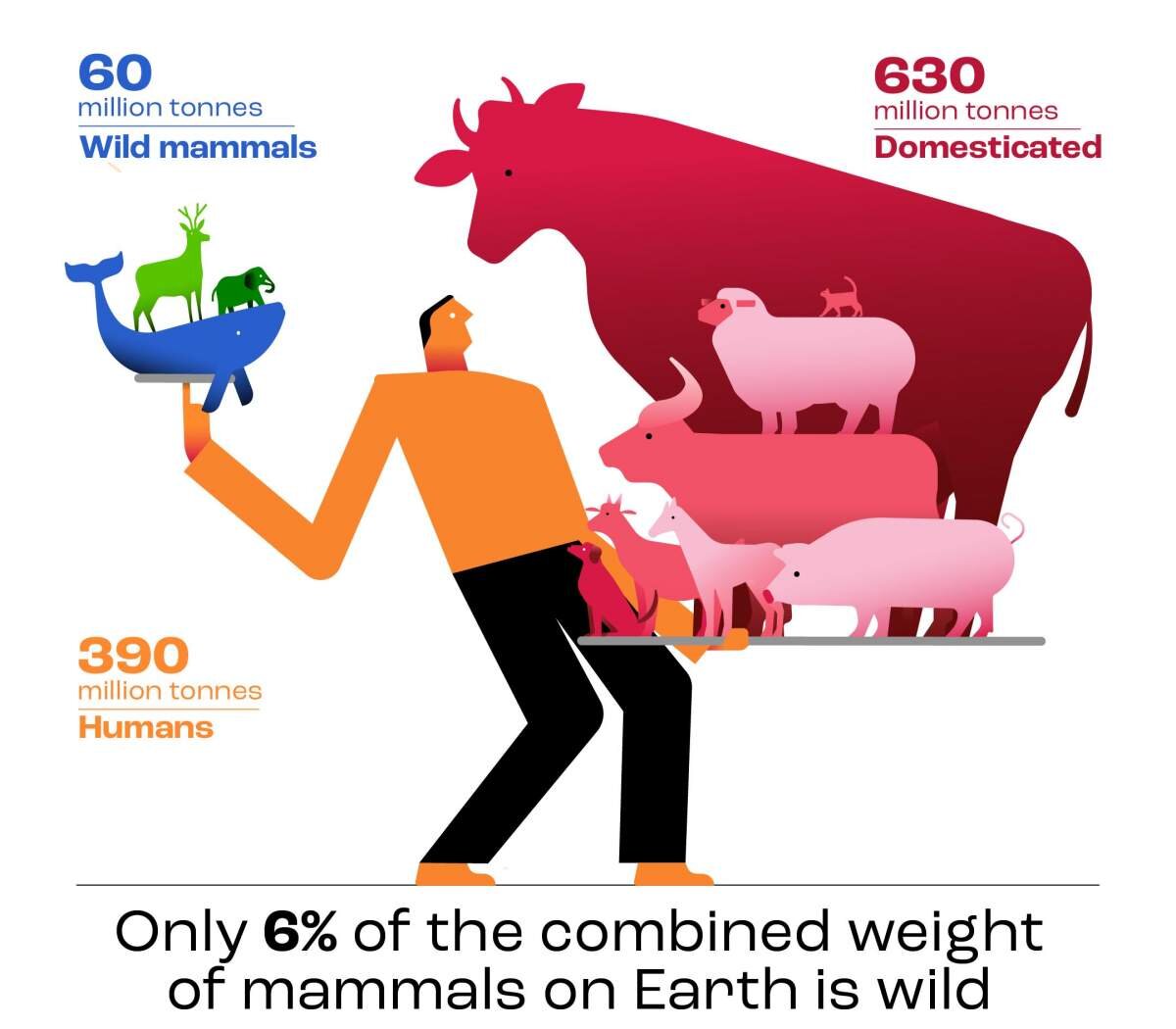Weizmann Institute of Science | February 24, 2023

The article reports on a new study published in the Proceedings of the National Academy of Sciences, which found that the total biomass of livestock on Earth is much greater than that of humans and wild mammals combined.
According to the article, the study found that the total biomass of livestock on Earth is around 700 million metric tons, while the combined biomass of humans and wild mammals is only around 100 million metric tons. The article notes that this highlights the significant impact of livestock on the environment and the challenge of feeding a growing global population.
The article goes on to discuss the environmental impacts of livestock production, including deforestation, greenhouse gas emissions, and water pollution. The study’s authors argue that reducing meat consumption and transitioning to more sustainable livestock production systems could help address these environmental challenges.
The article also notes that the study’s findings have important implications for food security, as livestock currently provide a significant source of protein for many people around the world. The article suggests that promoting more sustainable livestock production systems, such as regenerative agriculture and agroforestry, could help address both the environmental and food security challenges associated with livestock production.
In conclusion, the article highlights the significant biomass of livestock on Earth and its environmental impact. The study’s authors call for a shift towards more sustainable livestock production systems to address these challenges, while also ensuring food security for a growing global population.
